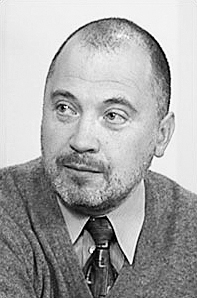 Nikolai Petrov
Nikolai PetrovArguably the most important event taking place within President Vladimir Putin's regime today is the merging of the Supreme Court with the Supreme Arbitration Court. Interestingly, the major changes that legislators are now making to the Constitution are drawing less attention than the decision five years ago to extend the terms for the president to six years and State Duma deputies to five years. The idea to make changes to the Constitution first arose in response to remarks Putin made at the International Economic Form in St. Petersburg in May. Now, a mere six months later, those changes are practically complete.
As a result, the Supreme Arbitration Court will disappear completely, and the 100 or so lower Arbitration Courts will merge into a single vertical structure of courts. Legislators will also make changes to the Supreme Court. The current judges, who were appointed for life, will apparently face retirement.
Meanwhile, Nikolai Bobrovsky, a close Putin ally and high-ranking official at the Federal Security Service, will handpick new judges from among a pool of 170. That pool of candidates will consist of three individuals from each federal district, meaning that many districts will not be represented in the final configuration.
At the same time, the president will gain greater control over the Prosecutor General's Office. Henceforth, the Federation Council will appoint and dismiss deputy attorney generals according to the president's recommendations. Putin will directly appoint regional prosecutors based on recommendations from the prosecutor general and regional authorities.
The package of bills already approved by the parliament will abolish the Supreme Arbitration Court within six months after the constitutional amendment has been introduced and will pass that court's authority over to the newly recreated Supreme Court. Although the law now requires that at least two-thirds of lawmakers in regional assemblies approve constitutional amendments, the authorities do not anticipate any setbacks considering that the Federation Council voted unanimously to support it.
With these reforms, Putin obviously hopes to eliminate the overly independent Supreme Arbitration Court and strengthen presidential control over the entire judicial system. He also aims to simplify and expedite the collection of arrears from businesses to ease the growing budget crisis.
Putin tends to oversimplify government in an attempt find simple solutions to complex problems. Now, responding to the increasingly complex challenges facing his government, Putin has responded by making it more primitive. This tendency has recently found expression in various mergers and consolidations. Across the country, five or six universities are consolidated into a single large university, and medical and the agricultural sciences academies are merged into a single academy. Continuing this trend, the country's two highest courts are now being merged into one, with the third, the Constitutional Court, awaiting changes to its fate as well.
The next consolidation on Putin's list may very well be geographic mergers. At the top of that list will likely be the Bryansk and Oryol regions, which would be combined into a single region, followed by the merger of the Astrakhan and Volgograd regions.
Nikolai Petrov is a professor of political science at the Higher School of Economics.
A Message from The Moscow Times:
Dear readers,
We are facing unprecedented challenges. Russia's Prosecutor General's Office has designated The Moscow Times as an "undesirable" organization, criminalizing our work and putting our staff at risk of prosecution. This follows our earlier unjust labeling as a "foreign agent."
These actions are direct attempts to silence independent journalism in Russia. The authorities claim our work "discredits the decisions of the Russian leadership." We see things differently: we strive to provide accurate, unbiased reporting on Russia.
We, the journalists of The Moscow Times, refuse to be silenced. But to continue our work, we need your help.
Your support, no matter how small, makes a world of difference. If you can, please support us monthly starting from just $2. It's quick to set up, and every contribution makes a significant impact.
By supporting The Moscow Times, you're defending open, independent journalism in the face of repression. Thank you for standing with us.
Remind me later.






